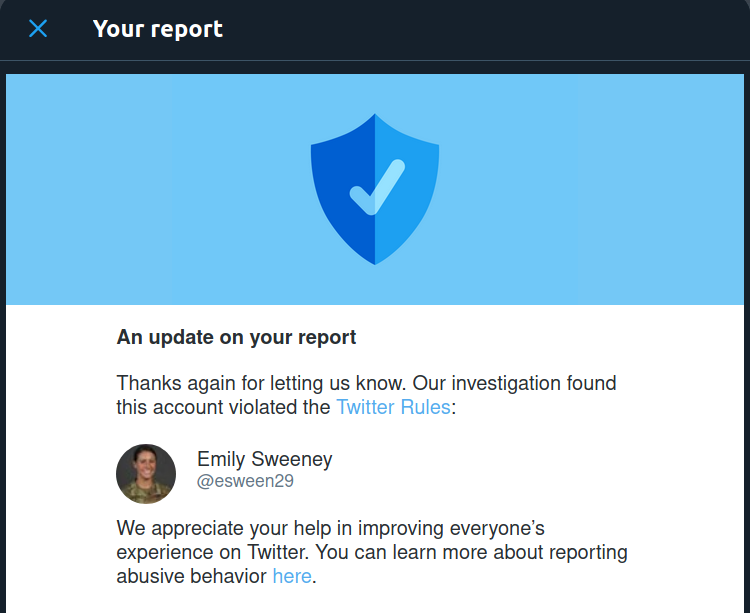Should Twitter tell you if you've been following a fake account?
I get a lot of random Twitter DMs from attractive women who are desperate to make friends with me. I usually report the obvious spammers. But a few weeks ago, one nearly slipped through the net.
The woman was wearing a military uniform - a proper one, not a sexy Hallowe'en costume - and was asking a fairly sensible question of me. But something didn't sit right.
Usually, these accounts have stolen photos and random names. But the name of the account matched the name on the uniform! A bit more digging showed there was a Verified account for the real user - so I reported the fake account for impersonation.
A few months later(!), and Twitter told me they'd removed the fraudulent account.

This got me thinking. How many fake accounts do I follow? How many have been retweeted into my timeline? How many have I interacted with? Surely, by the law of averages, I must have been fooled at least once. Right?
What if Twitter (and Facebook, and MySpace, and TikTok, and Club Penguin) told users that an account they were following has been removed?
Would you like to know that the "celebrity" you were following was actually an unauthorised fan account? How about that the insightful political analyst was really a paid-for propaganda bot?
The idea has some downsides.
There will be False Positives. An entirely innocent account which is removed despite doing nothing wrong. What are the libel laws if Twitter tells you @RealPoliticalAlanayst was deleted for being a bot - when they're not?
Does it diminish your faith in the platform if, once per week, you find out that accounts like @SuperKittensAway were paid to retweet Anti-Vax nonsense into your timeline?
You normally don't notice that you're no longer following a specific account. Does it have a chilling effect on you if people you thought you trusted are suddenly removed?
Is it overwhelming if you regularly get a notification which says "You recently liked a Tweet from @IdrisElbaIsSoFit - we have determined that account was paid for by the People's Front of Judea to promote anti-Roman sentiment"?
What if a user just deletes their account of their own free will. Should you be told?
There are tools which will monitor who you follow - so you can see if a user has been removed. But not the reason why.
With all that said, I think it would be useful if social media told you if accounts you interact with are removed. Whether it is for racism, trolling, propaganda, or malicious intent. Yes, it may reduce your willingness to engage with similar accounts - but that's probably a good thing.
Think I'm wrong? There's a comment box just down there where you can vent your ire.
Robert "Ruedii" says:
Pete says:
Stu says: